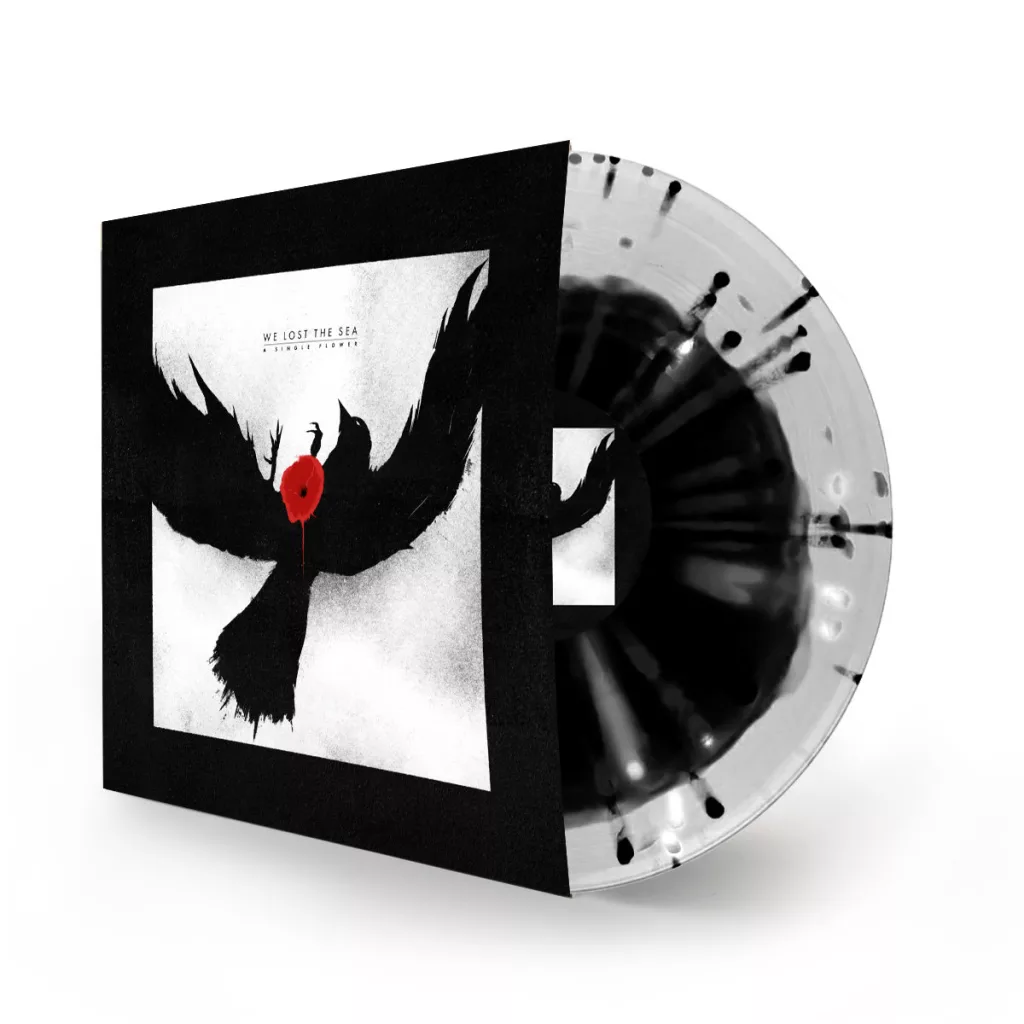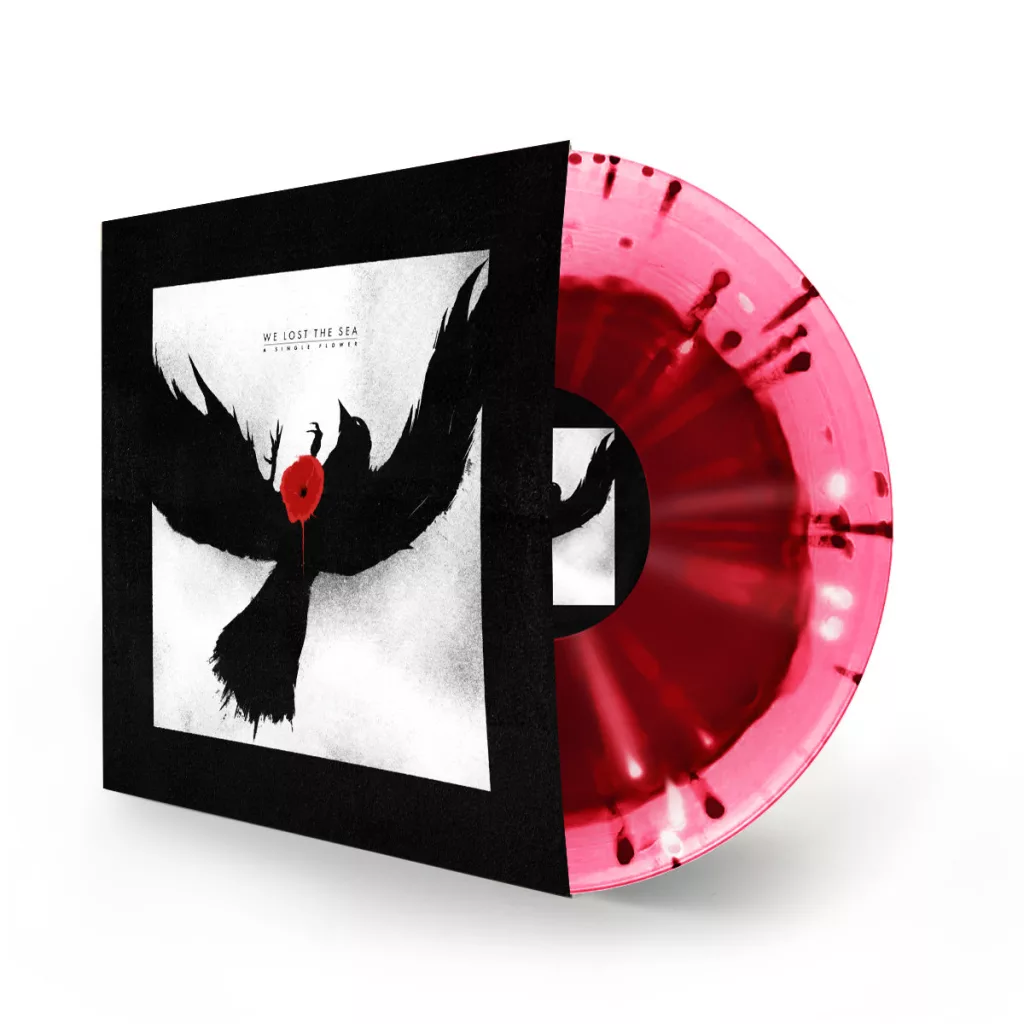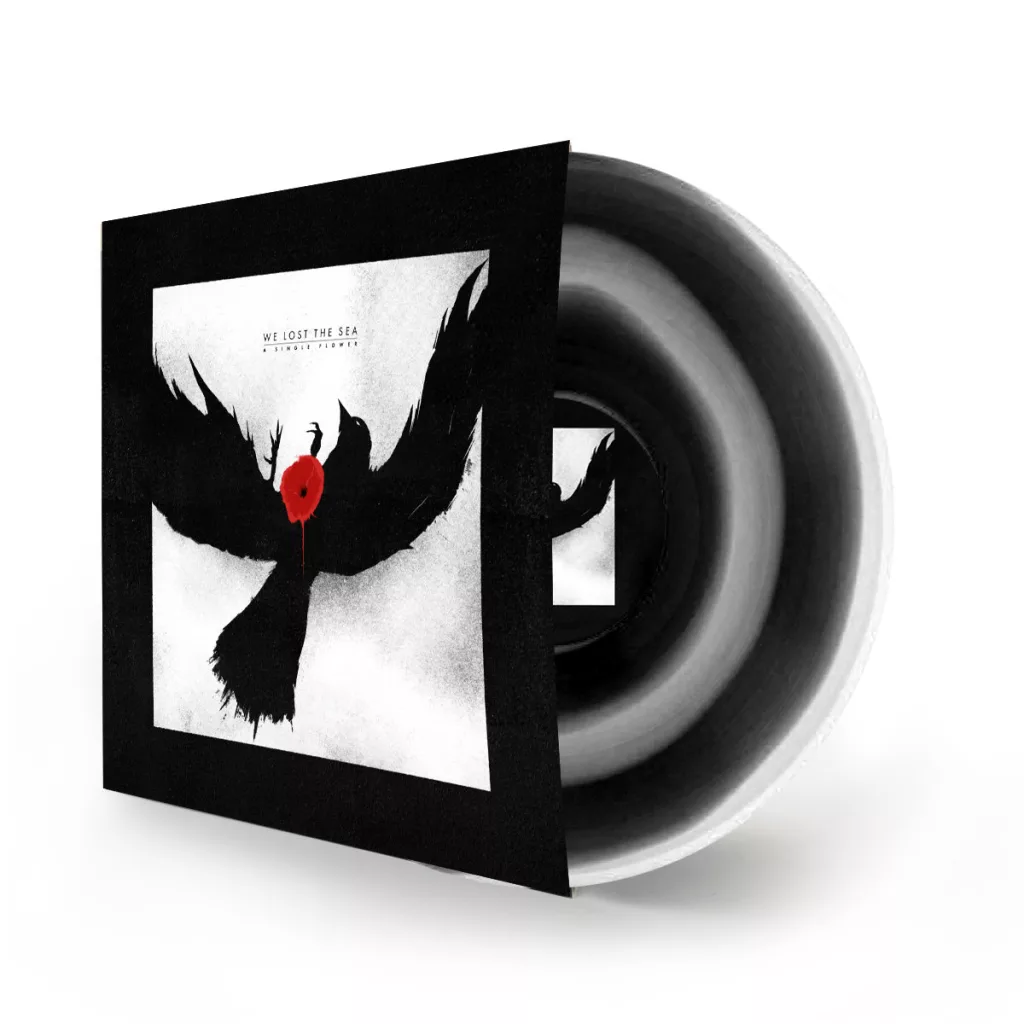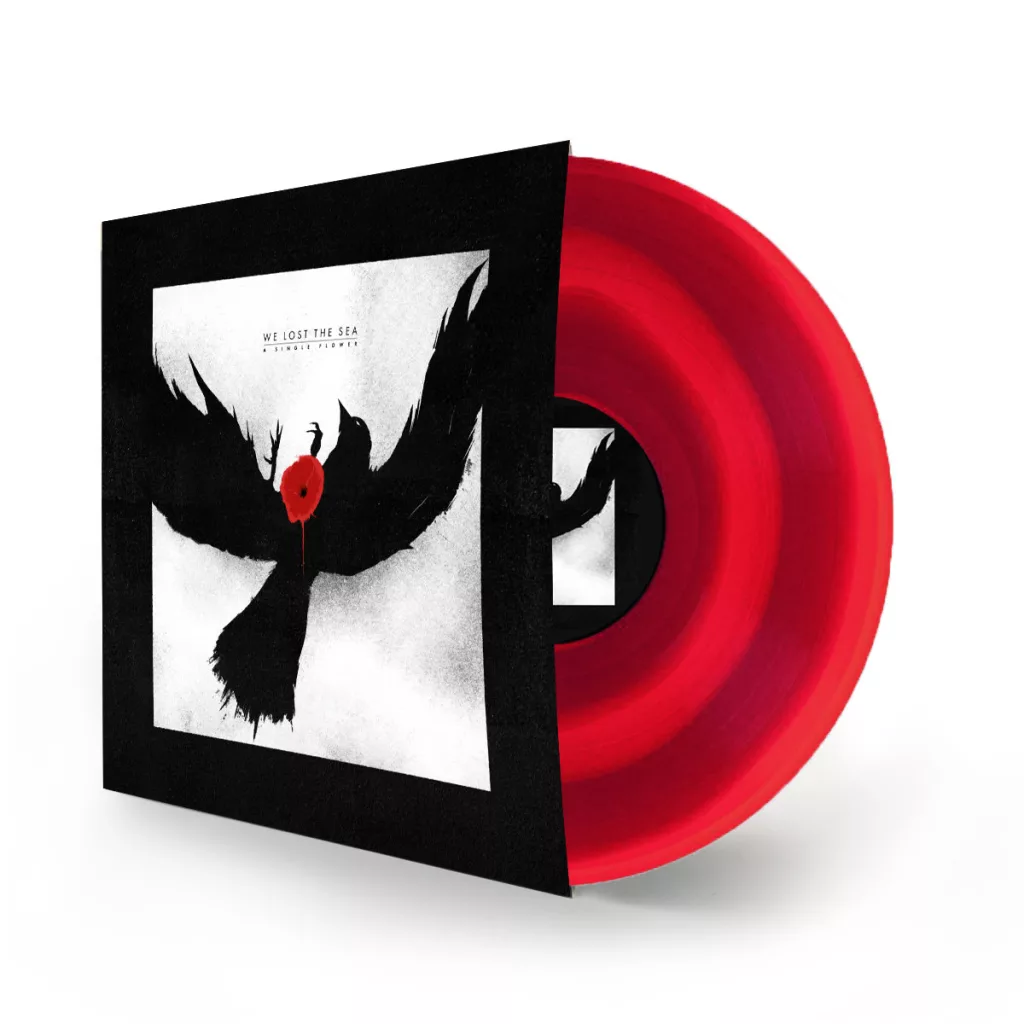Review: We Lost The Sea – A Single Flower
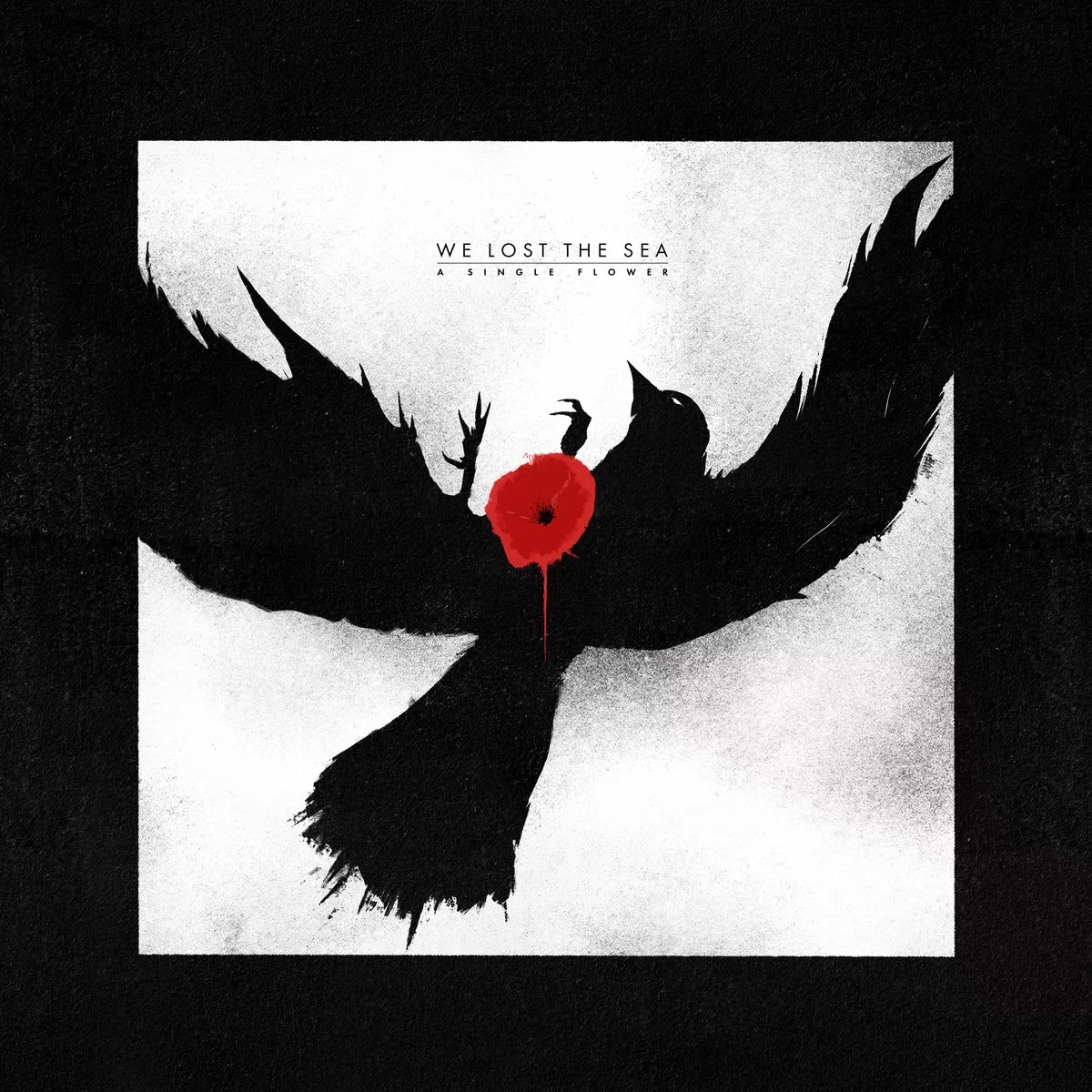
We Lost The Sea, the postrock stalwarts from Down Under, are back with a new record, which comes in several stunning vinyl variants. “A Single Flower” feels as an elegy written in sound. We Lost The Sea cast their net wide this time: the ambient, cinematic post-ock that made them known is still present, but they layer on grit, on heavier texture, on motion and memory in equal measure. The album does not simply unfold; it exerts gravity.
The journey begins with “If They Had Hearts”, a slow burn of guitar and bass that builds until it explodes in release. It sets the tone: patience, craft, and payoff. “A Dance With Death” carries the momentum forward with more force, percussion cuts sharp, guitar leads ascend, melodies climb. “Then Everything Here Is Black and Blinding” feels like descending into weight, the air thick and the pulse slow. “Bloom (Murmurations at First Light)” invites lightness and a moment of near hope before the longest song, “Blood Will Have Blood”, anchors everything with nearly thirty minutes of majestic scope, dread, reflection, and eventual catharsis.
Production here is vivid. Instruments live in space rather than on a flattened plane. The guitars shimmer, the bass hums, the drums knock without crushing. Silence and sound alternate, textures breathe, and the mix gives the listener room to inhabit the music rather than simply hear it. The layered instrumentation adds emotional depth; the band push beyond heavy crescendos into terrain where restraint becomes as potent as intensity.
The near-hour length ” A Single Flower” is bold, but some parts feel stretched, ideas revisited without variation, and in the end a bit predictable. The final piece in particular, while grand, might test patience: its expansiveness is both its strength and weakness. Yet in the contrast between heaviness and quiet, between ruin and bloom, the album finds its voice. We Lost The Sea have matured not by pulling back, but by opening out, giving their sound more room, more color, more dusk. This record isn’t about the firework; it’s about the long burn, the ember carried forward, the flower grown in ruin. It’s instrumental music that wants you to feel, not just listen.
For fans of postrock that leans into the duality of darkness and light, “A Single Flower” is more than a good album. It’s one you settle into, let it broaden around you, let it adjust your pace. It carries weight, does justice to its moments, and expands what the band can mean. It may not be flawless, but in its strong passages it reaches for something rare.
